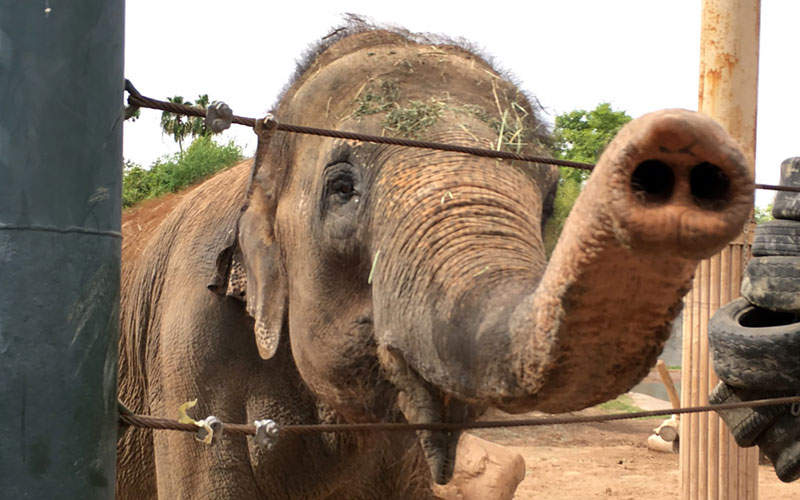Scientists have been stumped for decades as to why elephants rarely get cancer. A new discovery, with a link to ASU, may have the answer.
Elephants have a 5 percent mortality rate linked to cancer. That’s half the rate for humans, even though elephants have far more cells than humans. Scientists have been studying elephants to look for clues to their cancer-fighting power.
Carlo Maley, an associate professor at ASU Biodesign Institute, worked with a team on the ground-breaking discovery.
“What we found was that they have many extra copies of a tumor suppressor gene,” Maley said. “So, there’s a gene and one of its functions is to prevent cancer.”
It’s called gene P53. Humans have two copies, while elephants have at least 40. Once the gene detects a risk of cancer in a cell, it kills off the cell right away before any tumor has a chance to grow.
“So this is really exciting to us, it means every large organism out there has a key to preventing cancer and there’s just discoveries waiting to be made,” said Maley.
At the Phoenix Zoo, Sheena is a 43-year-old Asian elephant – the type that scientists have been studying. Heather Wright, the elephant manager at the zoo, has been working with Asian elephants for more than 15 years.
“I mean, they’re just amazing. I don’t know if you call them spiritual, but you just look into their eyes and there’s something deep going on in there,” Wright said.
But what Wright didn’t know was that Sheena has a cancer prevention gene that’s inside all elephants.
“I love her and she loves me and so it’s definitely been worth it, says Wright. “It’s a fun bond to have.”
The next step for the research is to see how the gene discovery can help prevent cancer in humans. Maley’s team is now moving on to an even bigger mammal, the humpback whale, to study how they too avoid cancer.
